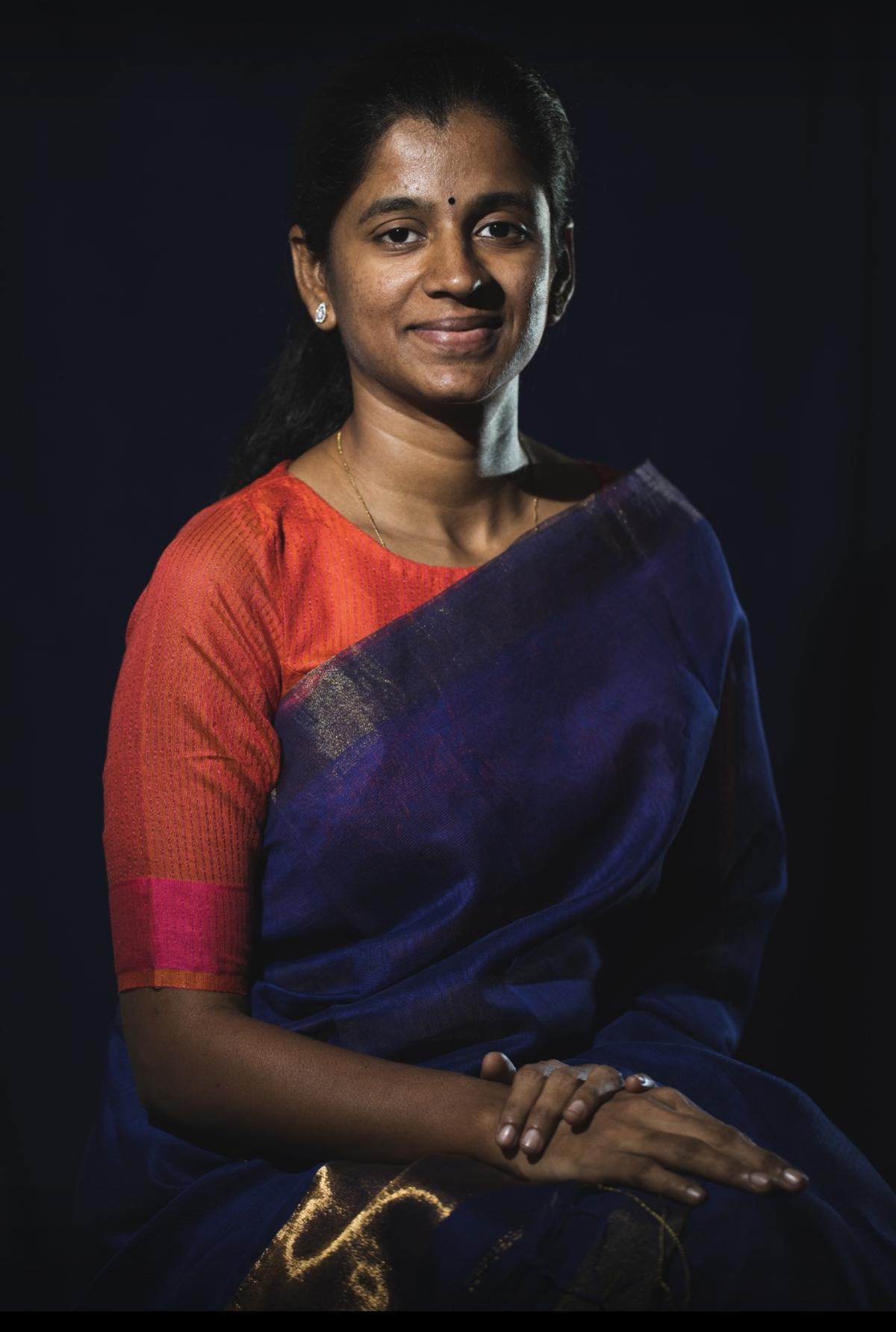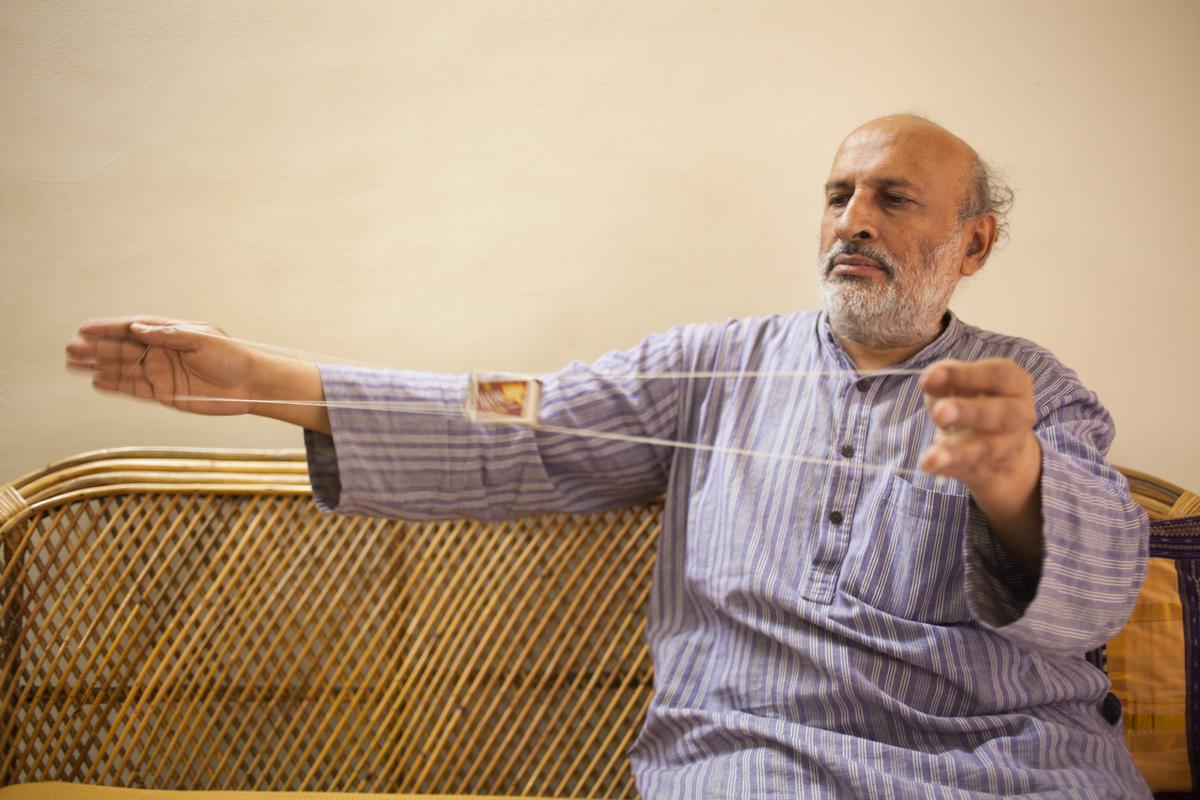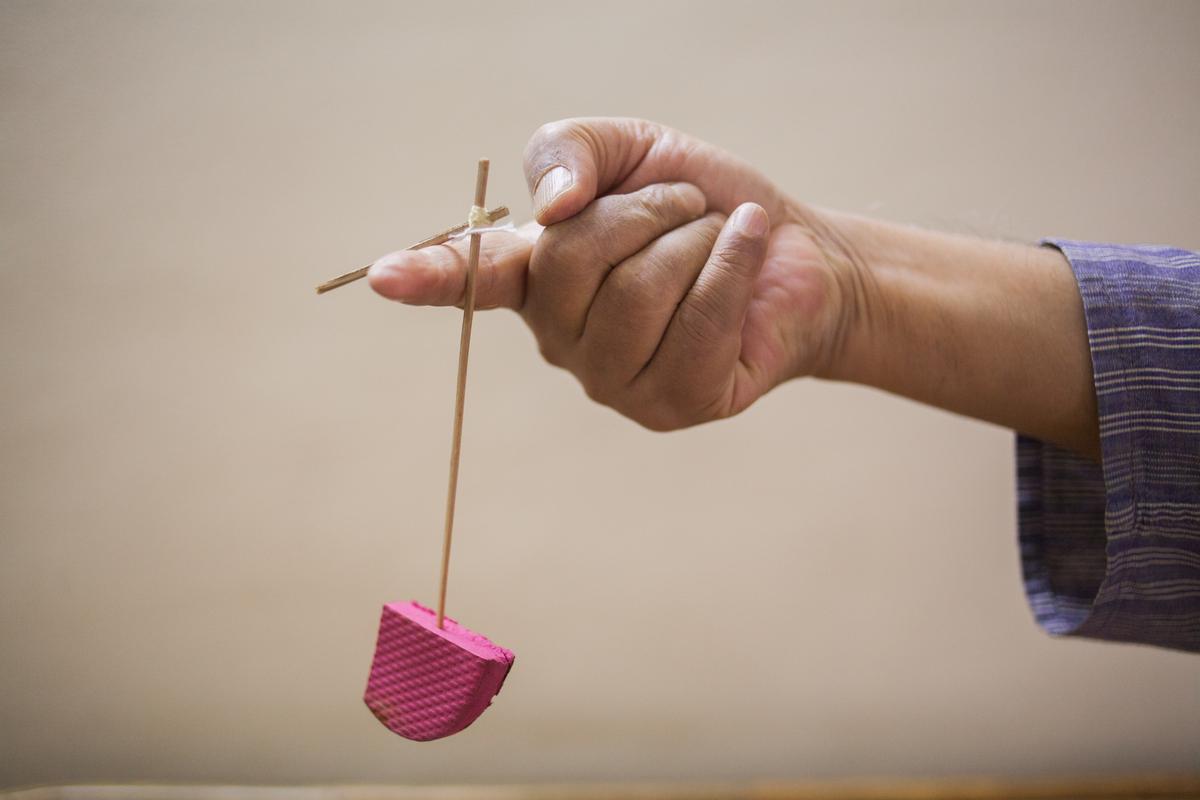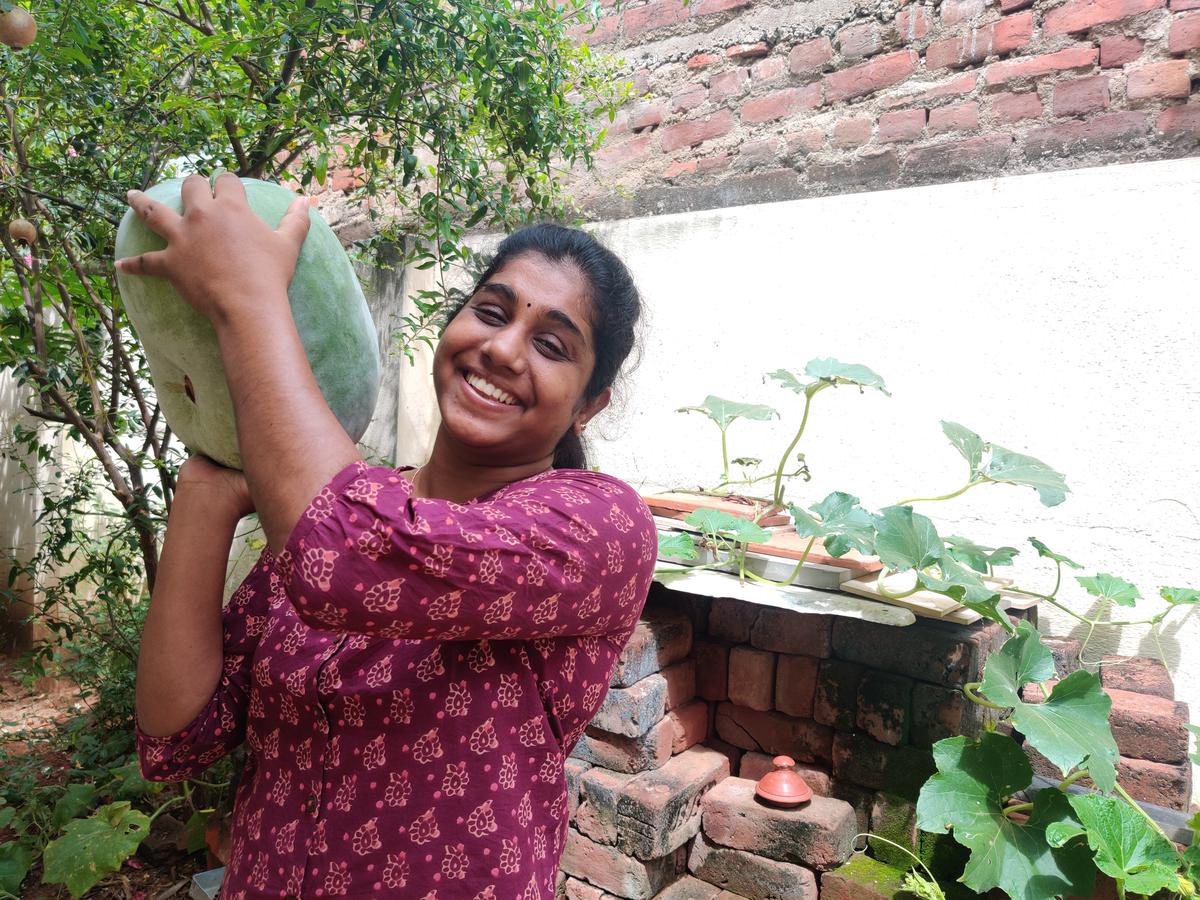What can one do with waste? With the Central Government banning single use plastic, people who follow a zero-waste lifestyle show us ways to reduce and repurpose what goes into our trashcan
What can one do with waste? With the Central Government banning single use plastic, people who follow a zero-waste lifestyle show us ways to reduce and repurpose what goes into our trashcan
I recently found a stash of chocolate wrappers in my drawer. Carefully preserved by my five-year-old, I left it untouched. He is yet to identify a wrapper as ‘waste’, like the rest of the world does. Right now, it is a shiny ‘something’ that can be of use later.
Waste, means different things to different people. For YouTuber Nayana Premnath, it is something that has to be properly segregated. Nayana follows a zero-waste lifestyle: which means that she is conscious of every bit of waste she generates. Her videos and Instagram posts explain the nuts and bolts of this lifestyle. She shows how she segregates her waste; describes ways to shop for fruits, vegetables and groceries in sustainable ways; lists initiatives that help put unused clothes to good use; explains how composting is done…
Nayana Premnath
| Photo Credit: Special arrangement
It all started in 2019, when Nayana put out videos on how much easier her life became after she shifted to menstrual cups. “This is when I fell into the zero-waste rabbit hole,” laughs Bengaluru-based influencer, who has over 40,000 followers on Instagram. Nayana says a zero-waste lifestyle is easy to adopt in India. “Traditionally, we have always been zero-waste. By talking about such practices, I am asking each of us to go back to our roots; to what our grandparents did,” says the 32-year-old.
Ahmedabad-based scholar Anil Gupta remembers how in the 1950s and ‘60s, goods were wrapped in paper at grocery stores and secured with thread from a gigantic spool suspended from the shop’s ceiling. “My grandfather would collect these wrappers and place them under the bed to be flattened. He would suspend the thread on a nail on the wall to be reused,” he says. Having travelled across our rural landscape to document grassroots innovations, Gupta has seen how in most of our villages, sustainable living is something that is a matter of fact.
“I once saw a string cot woven with strips made from plastic covers,” he says, “It shone in places because of the variety of colours used.” Gupta says his mother too wove mats out of plastic covers: repurposed bits of used clothes for dusting, and distributed leftover food to birds and squirrels. “Circular economy has always been part of our culture,” he points out.
But somewhere along the way, we lost our way. Single-use objects made our lives easier, in turn, our landfills and oceans bore the brunt. “It is said that our first toothbrush as a baby is still lying somewhere on this planet,” Nayana points out. Is there anything we can do to undo this damage? Madurai-based S Vishnu Priya says one can start with simple steps.
“I did by carrying cloth bags when I went shopping, avoided disposable cutlery, used shikkakai and bathing powders instead of shampoos and soaps. Right now, my focus is on sustainable cotton clothes,” says the 36-year-old who follows a “low-waste lifestyle.” Her journey began in 2016 when she started work on Meel, a documentary film on domestic waste. Vishnu Priya says that zero-waste is a misconception. “It is not possible for one to be entirely zero-waste. Look around, everything we use, right from our helmets to spectacle frames come with plastic components that will end up as waste. What we can do, is try and reduce the waste we generate.”
Coimbatore-based Durgesh Nandhini does this by limiting things she buys. The 36-year-old mother of three girls is a minimalist. “I have not even bought a nappy till date for my six-month-old,” says Durgesh. All of her baby’s clothes are hand-me-downs from friends. “Baby clothes hardly get used more than six or eight times,” she points out, adding that it all boils down to “letting go of one’s ego and asking people”. Durgesh has held clothes-swap parties, built a steel cutlery bank, and does not buy toys for her children. She adds: “Children do not need toys to keep themselves occupied; through play, they relive experiences they went through elsewhere.“

Durgesh Nandhini
| Photo Credit: Special arrangement
In her decade-long experiments with ways to live sustainably, Durgesh has had several unforgettable experiences. “I’ve clogged my entire apartment’s drains when I used wood ash for doing the dishes — our buildings are not designed for such practices,” she says. Then there were times she took her own cloth string pouch to the theatre to buy popcorn. Durgesh reads up a lot for inspiration and sometimes, ideas come from the unlikeliest of places. “I watch old Visu movies with my grandmother,” she laughs. “He shows how it is our way of life to go shopping with a koodai, use a metal bucket…”
When Visakhapatnam-based Shilpanjani Dantu was curating a bulk order for sustainable gift hampers about a year ago, she realised that one of the biggest hindrances of getting customised Indian crafts to the market was the lack of logistics support from craft clusters. Adding to that, the city lacked a store that provided a platform for curated sustainable hampers. “There is a growing preference towards moving away from single-use products and many are looking at inspiring their friends and family to make that shift towards a zero-waste lifestyle by gifting hampers that reflect the message,” says Shilpa.
Shilpanjani along with her friend Supriya Surapaneni started Exo Baxa about nine months ago. “Don’t give someone a product. Present them a purpose. This is what we say through our curated hampers,” says Shilpanjani. Eco Baxa works closely with 30 craft clusters across India and a team of women from a self-help group in Visakhapatnam who support in customising the hampers through hand embroidering. “Every element of our hamper can be reused or repurposed,” says Shilpanjani, adding that she has started learning about mindful consumption. “Most of my saris are from my mothers’ and grandmother’s wardrobe. I am also starting to buy less,” she adds.
From segregating plastic and electronic waste, switching to menstrual cups to swapping clothes, Shravya Garuda, a former banker, financial consultant and homemaker from Visakhapatnam, believes that the change towards a zero-waste lifestyle begins one step at a time. “Waste segregation happens at source in my place and the plastic and electronic waste are collected by two city-based organisations from our doorstep.” Shravya prefers to purchase her groceries from a neighbourhood kirana store at Pandurangapuram that allows her to get her own boxes or containers to fill up daily consumable products like lentils and rice. “I prefer swapping clothes instead of buying new ones. My kids don’t even notice or question when they wear hand-me-downs.”

Arvind Gupta
| Photo Credit: Special arrangement
Pune-based science innovator Arvind Gupta gave trash a whole new meaning by turning them into toys. Give him an old plastic bottle and he can make a hundred toys out of it. “A newspaper can be used to make a dozen caps,” he points out. In his own way, Gupta has been showing how waste can be repurposed. He believes that in the end, it all boils down to our children. “By imbibing in them with the sensitivity to pick up something that is discarded, we imbibe the spirit of recycling,” he says. “They will then understand that we are all connected. If we harm the planet, we harm ourselves.”
(With inputs from Nivedita Ganguly)

A toy made from everyday objects
| Photo Credit: Special arrangement
It’s in the little things
Keep cloth bags at the ready inside your car, scooter, and handbags for shopping: planned or unplanned
Invest in a bamboo toothbrush: prices start from ₹60
Carry steel containers in your bag when you dine out so that you can pack leftovers in it
Carry your own water bottle and cutlery when travelling by trains and buses
Switch to menstrual cups, cloth pads, and cloth diapers
Be informed about trash recyclers in your neighbourhood and maintain a rapport with your local waste collector
Collect fruit and vegetable peels and give them away to farm animals in your vicinity
Old pillow covers can be repurposed into bags; bed sheets can be cut and used for dusting

























